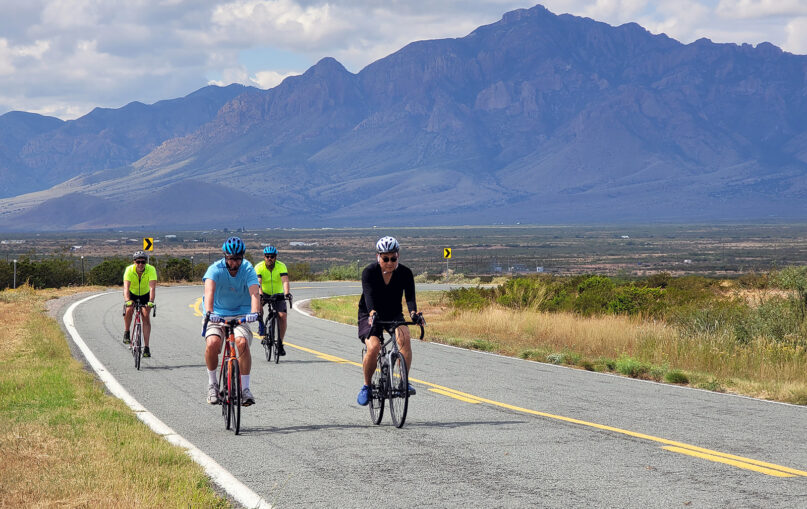(RNS) — This the journal of the We the People Ride, a 3,200-mile bike ride along the southern edge of the U.S., from San Diego, California, to St. Augustine, Florida. Led by Vote Common Good, members of the public are invited to join any length of the journey, both in person and online.
As the group rides, we are finding and telling the stories of those most impacted by U.S. immigration policy and are sharing their experiences and treatment. Each week we’ll file a dispatch from the road.
We pledge to look to those living on the borderland for answers, opportunities and changes to immigration policy.
We hope to connect and learn from immigrants to deepen our nation’s understanding and ability to call for just action at our border. In traveling to the border, we hope to remind the public that immigration is a human story, and that it is a Christian duty to fight for fair immigration policy.
Here’s the latest on our ride:
October 21: ‘Churches have become fossils’
EL PASO, Texas — A passage from the Book of Leviticus stands out to me as we ride along the border: “When a stranger resides with you in your land, you shall not wrong him. The stranger who resides with you shall be to you as one of your citizens; you shall love him as yourself, for you were strangers in the land of Egypt” .
This is one of many references to migrants scattered throughout the Bible, all similarly encouraging empathy and love toward new arrivals in one’s land. Here’s another, in the Gospel of Matthew: “I was hungry and you gave me food, I was thirsty and you gave me drink, I was a stranger and you welcomed me.”
These biblical dictums contrast sharply with the tenor of U.S. immigration policy debate today, in which many conservative politicians — and even Christian communities around the country — seem prone to viewing immigrants as invading “illegals” and “aliens” that threaten their way of life.
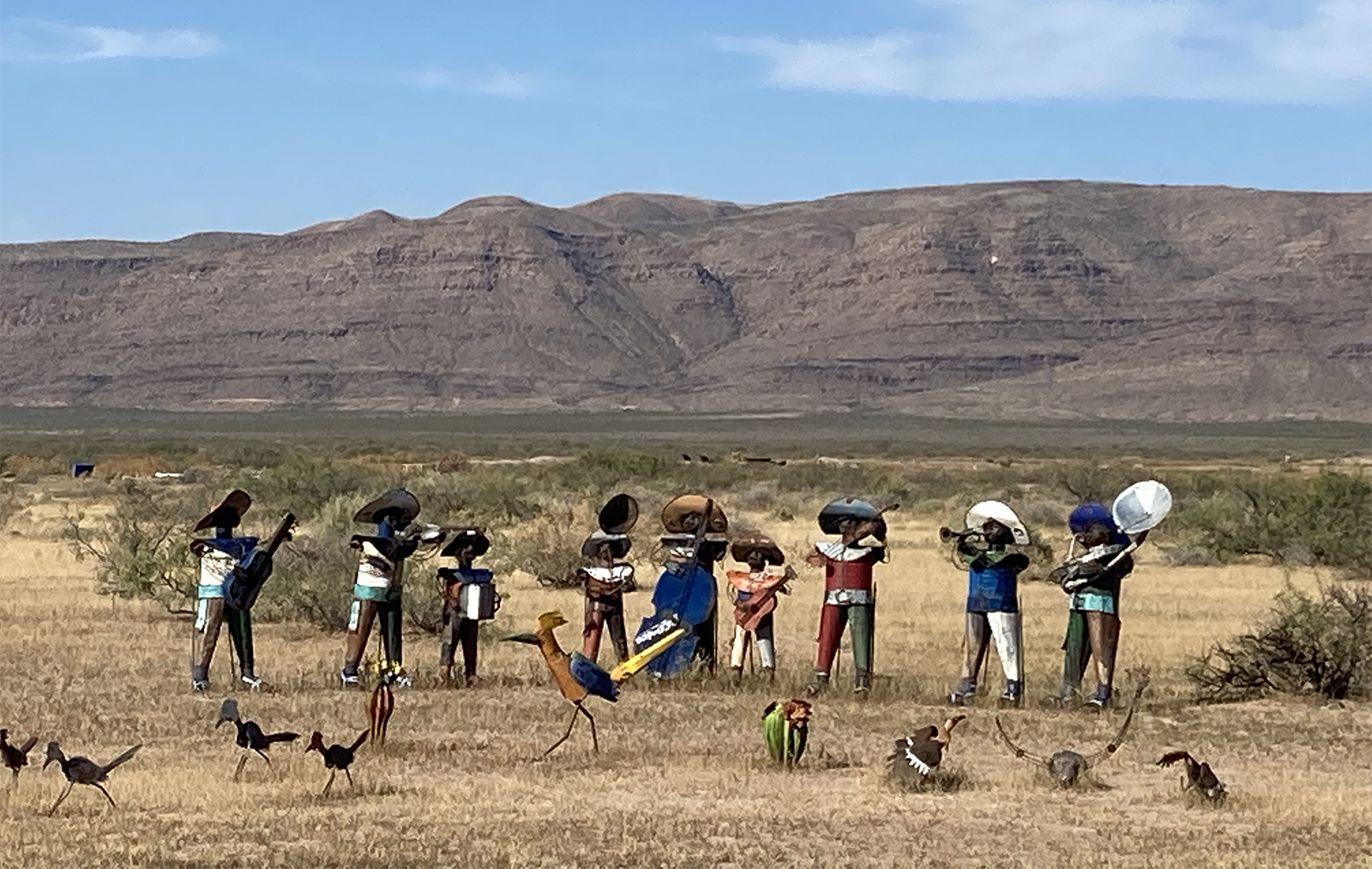
Views from We the People Ride along the U.S.-Mexico border. Photo courtesy of Vote Common Good
As we continue the We The People Ride, we spoke with an El Paso resident named Nancy Howell, who reflected that many Christian communities feel out of touch with the reality on the ground, and out of sync with the Bible’s teachings when it comes to migrants. She believes churches need to step up and offer compassion to immigrants who have come to the U.S. in their time of need.
“I think churches have become fossils, and that the real church today is happening outside of the walls of a building,” said Howell. “I find my hope in small groups, and in the young people, wanting to make changes.”
We are living through one of the greatest humanitarian crises in U.S. history. Migrants face perilous passages, overcrowded and unsanitary detention centers, communication barriers, theft and a lack of food.
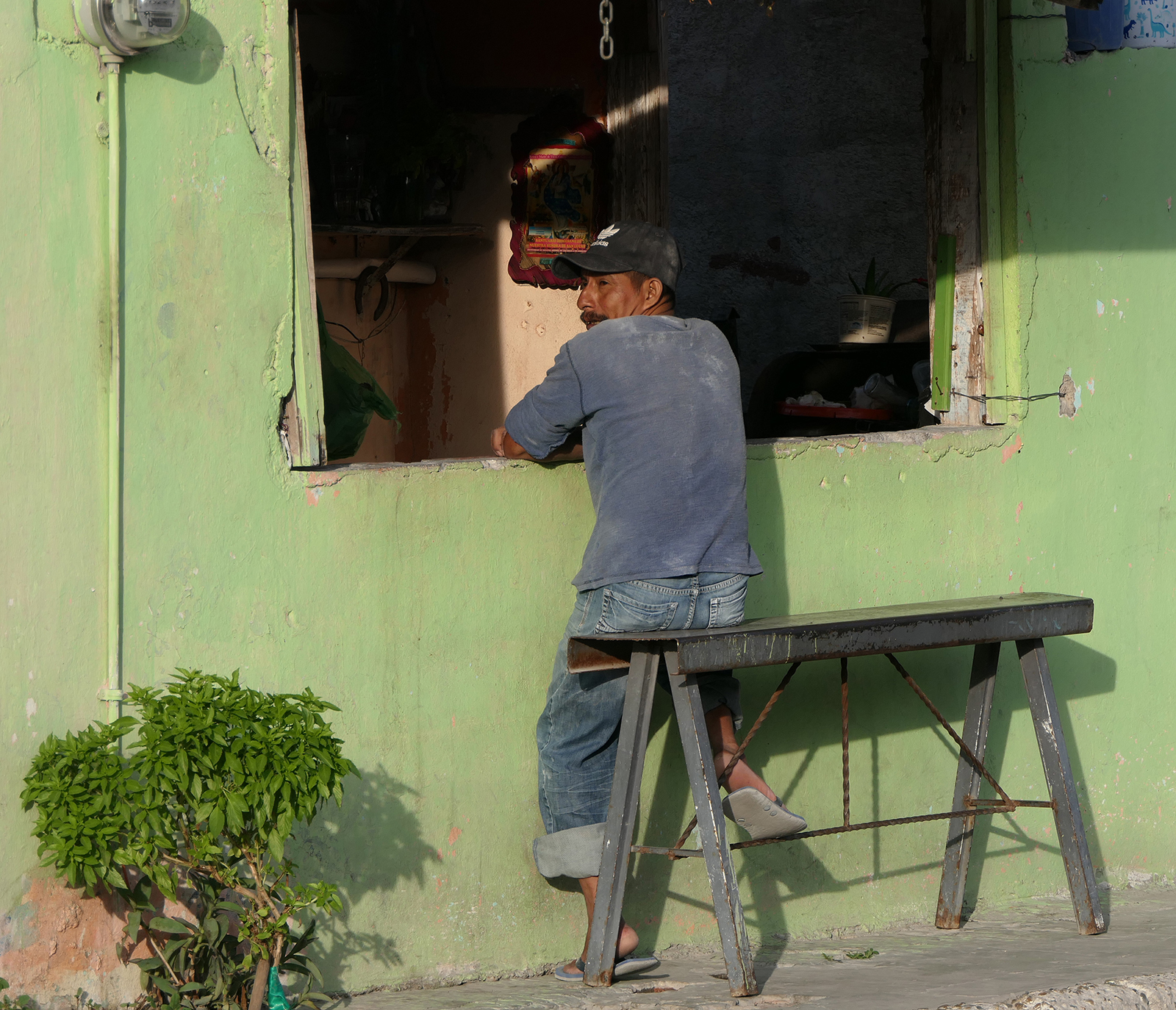
Views from We the People Ride along the U.S.-Mexico border. Photo courtesy of Vote Common Good
Yet as thousands of unaccompanied minors confront violence and risk of exposure thousands of miles from home, many American churches who preach love for thy neighbor either remain silent or contribute to the fear mongering that alienates non-citizens and exacerbates the challenges they face.
The United States has been and will always be a melting pot of immigrants. The people of “We the People” that is in the preamble of the Constitution refers to indigenous communities, those brought via slave trade, and those who traveled to the U.S. in search of a better life. This diverse population remains America’s greatest strength.
We recently met with Sami Dipasquale and his team from Abra Frontiers, a group that cultivates opportunities for serving, understanding and loving across the border through education, conversation and advocacy. We shared Communion alongside them through the border wall.
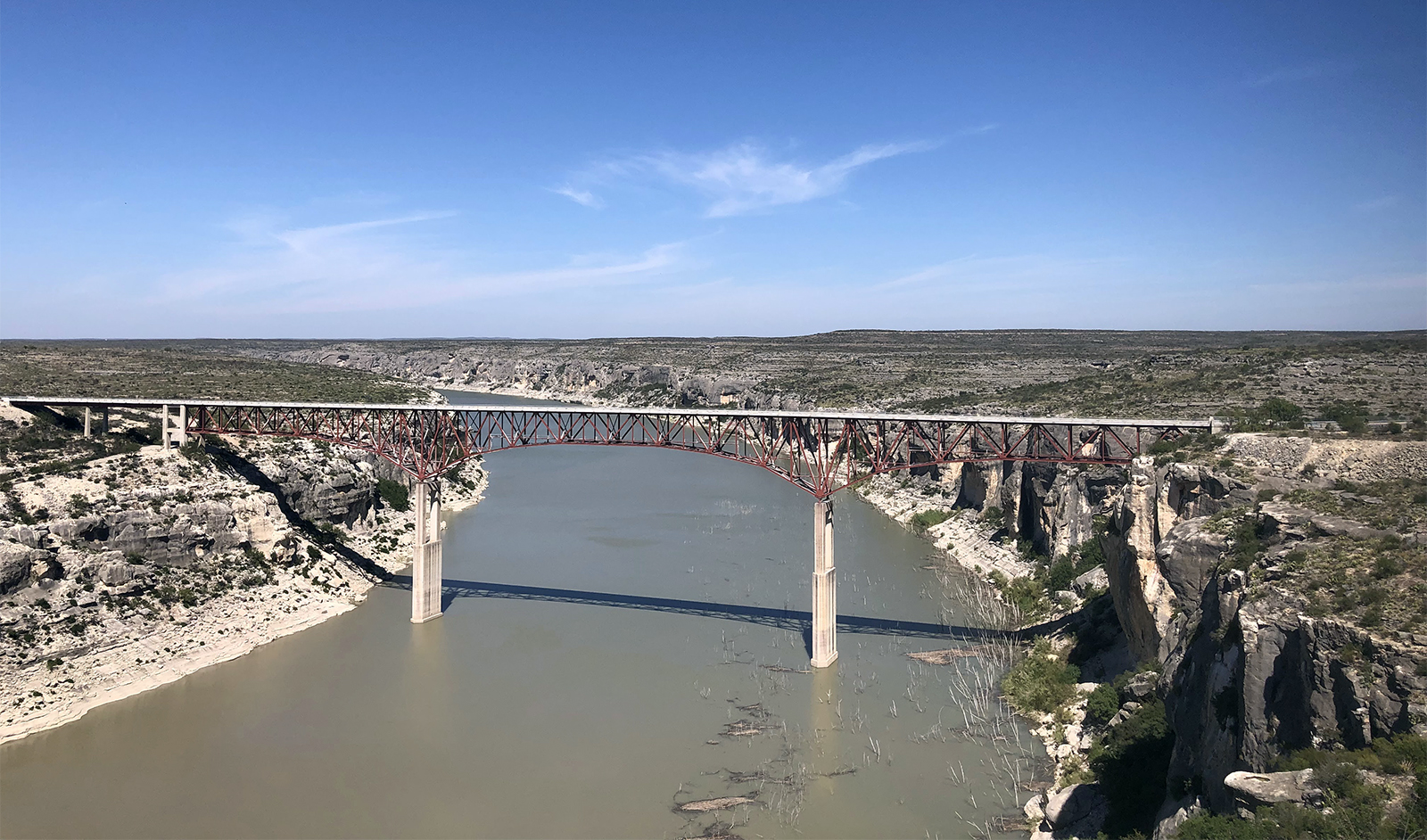
Views from We the People Ride along the U.S.-Mexico border. Photo courtesy of Vote Common Good
Dipasquale noted that in his experience, “If you come into a shelter . ..What you would see overall is a 23-year-old mom, maybe mom and dad with a three-year-old and an infant. Really desperate and searching for a new life and scared and humble and wanting to follow the laws.”
As volunteers passed cups and small pieces of bread for Communion through the gaps in the border wall Dipasquale said, “This could be a place for justice, for peace, hopefully…a place where some healing could take place.”
Now more than ever Christians need to be a part of the solution to the crisis at the border. We have a Christian duty to fight the narrative that migrants are anything more than human beings seeking safety, community, or a better life. America’s 90-million strong evangelical population has a voice that, if employed for the common good, could be a major force for positive change on the border. A force that advocates for border practices that reflect Christian values, an immigration system that values migrants’ humanity and prioritizes humane treatment for all.
October 14: Mayor says local crime rate hides citizens’ values
Here’s this week’s dispatch:
DOUGLAS, Ariz. — We’re 800 miles into our ride and meeting the mayor of Douglas, Arizona, a town that shares a border with Mexico.
Douglas has one of the highest crime rates in the country, with 37 violent and property crimes per thousand residents. But this statistic, which on the surface seems like a political talking point, tells a much deeper story of resilience, faith and community.
RELATED: Dispatches from the U.S.-Mexico border: A ride for immigration justice
Mayor Donald Huish said during our conversation: “It’s a safe town. People across the country have this impression that it’s lawless. But nothing could be further from the truth. The values that people have here are based on family, belief in Christ. That permeates throughout our community, and allows us to reach out and try to help others.” Douglas residents recently called the town’s alleged dangers “hype” in interviews with Arizona reporter Tim Steller.
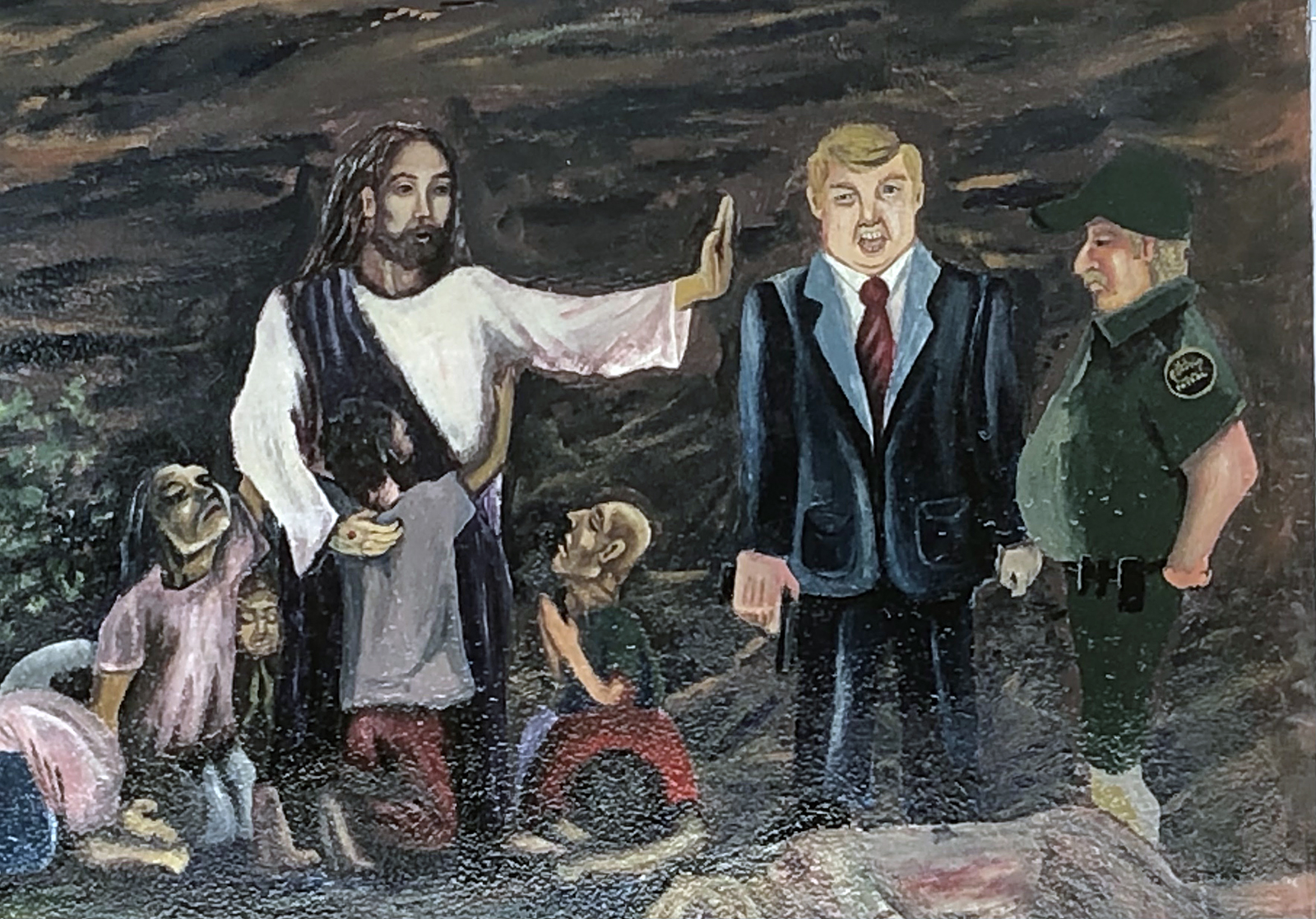
Views from We the People Ride along the U.S.-Mexico border. Photo courtesy of Vote Common Good
But Douglas has taken an economic hit in the last decade, with skyrocketing unemployment rates and low property values. It relies heavily on the commerce that comes with being on the border — an industry that is negatively impacted by rising sentiments of border hysteria, often perpetuated by Republicans (including former United States presidents) who employ these kinds of narratives to further their “law and order” agenda. The border, Douglas’ main advantage, becomes a hindrance when viewed with unfounded fear.
Granted, a primary goal of the U.S. immigration enforcement system is to maximize compliance with the law. But, in order for a person to be compliant, they must first be presented with a digestible, accessible legal system that provides realistic pathways to follow. Our current system simply does not permit this. We offer immigrants impossible-to-maneuver legal barriers that only further exacerbate frustrations at the border and bar thousands from being able to enter the country legally.
“The policies that are made in Washington, D.C., affect us personally, day in and day out,” Huish said. He argues that common-good immigration practices would benefit the people of his town. Fearmongering tactics only further hurt border towns like Douglas.
“I would encourage the federal government to install more judges (and fair processes) for these people who are simply seeking a better life,” Huish continued. “We need these people to have a hearing within a week, so that they can go on and be with their families. And if it’s a ‘no,’ it’s a ‘no.’ But at least they’ll know.”
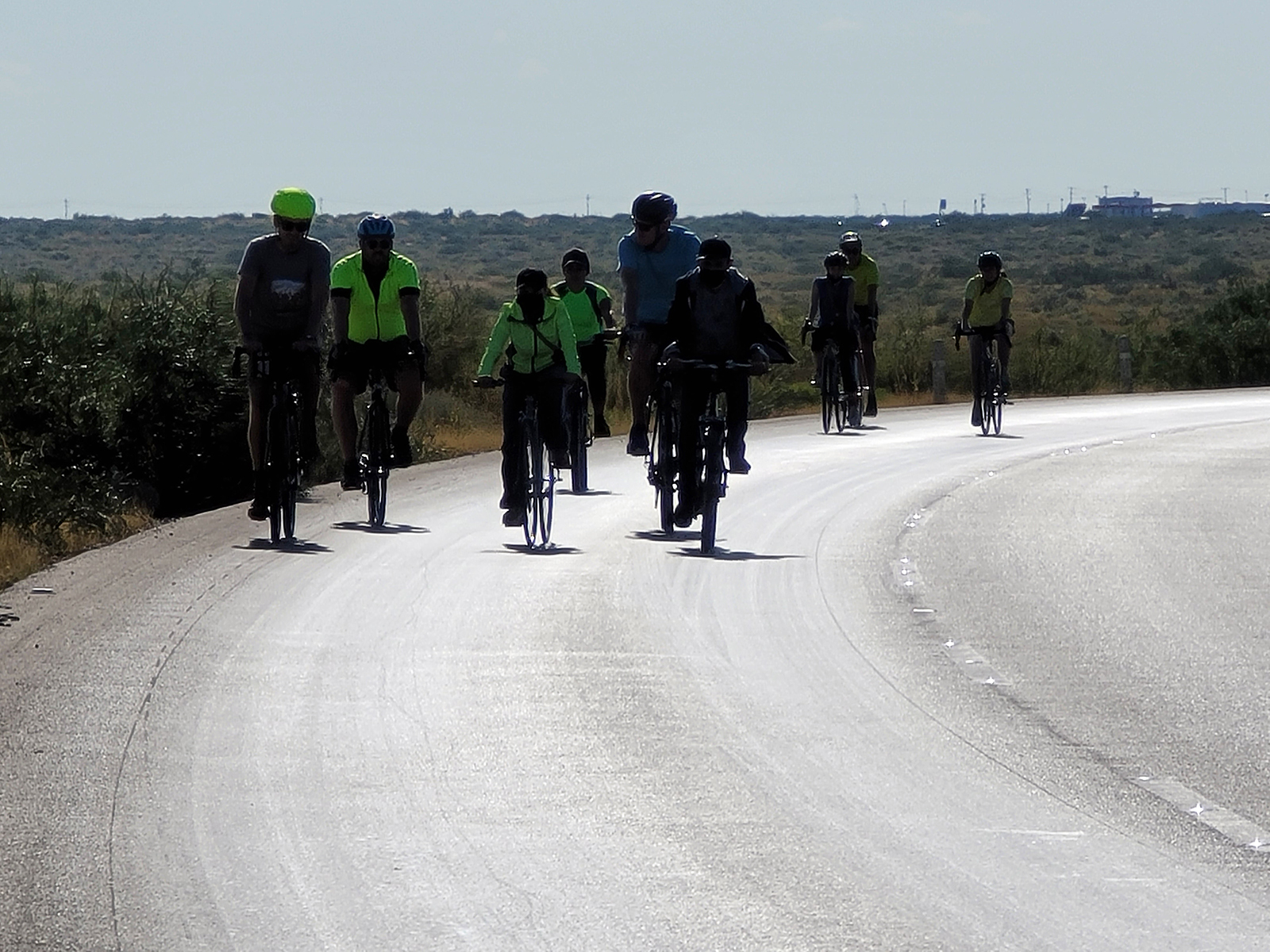
We the People Ride participants bike near the U.S.-Mexico border. Photo courtesy of Vote Common Good
It was instructive to hear the mayor of a border town with a high crime rate calling for immigration policy that treats migrants and asylum-seekers as exactly who they are: human beings. The members of our ride were in complete agreement with him when he noted: “These people are hungry for freedom. Some are spiritually hungry, physically hungry. If you see little children who are starving, what are you going to do? You’re going to take the chance to get them up here.”
In Douglas, we learned how border hysteria has a material impact on American citizens. Despite this, the people of Douglas continue to call for the humane treatment of immigrants. Huish said to us: “If you want a wall, build a wall. But we need to open a gate and allow people to enjoy the blessings we have here in the United States.”
When we embarked on our ride, we committed to following the lead of those living on the borderland for the answers, opportunities and changes to border and immigration policy. This week, the mayor of Douglas, in his proximity to these issues, voiced his support for the fight for common-good immigration reform.
September 17: The ride begins
As our group of riders — small, but strong and quickly growing in size — crosses a particularly rough patch of California land, I pause.
In the few days since we embarked on our journey along the border to Florida, U.S. citizens and immigrant families alike have watch with bated breath as Congress deliberates about a pathway to citizenship in its reconciliation package; Haitian refugees continue to be forcefully expelled from our land; and Republican governors have travelled to the border to outline their 10-step “security” plan.
These conversations all lack the key to unlocking ethical, common good policies: humanity. Too often, we forget that the United States is the sum of its people. Our different backgrounds, experiences, languages and cultures give this country strength and foundation. We, The People, are a multitude.
We The People, the riders who are making this trip, believe our entire nation can benefit from hearing directly from those closest to immigration issues. On this journey, we’re meeting those who live on the border, serve one another on the border, work along the border, and have come to the border as refugees, asylum seekers, and migrants.
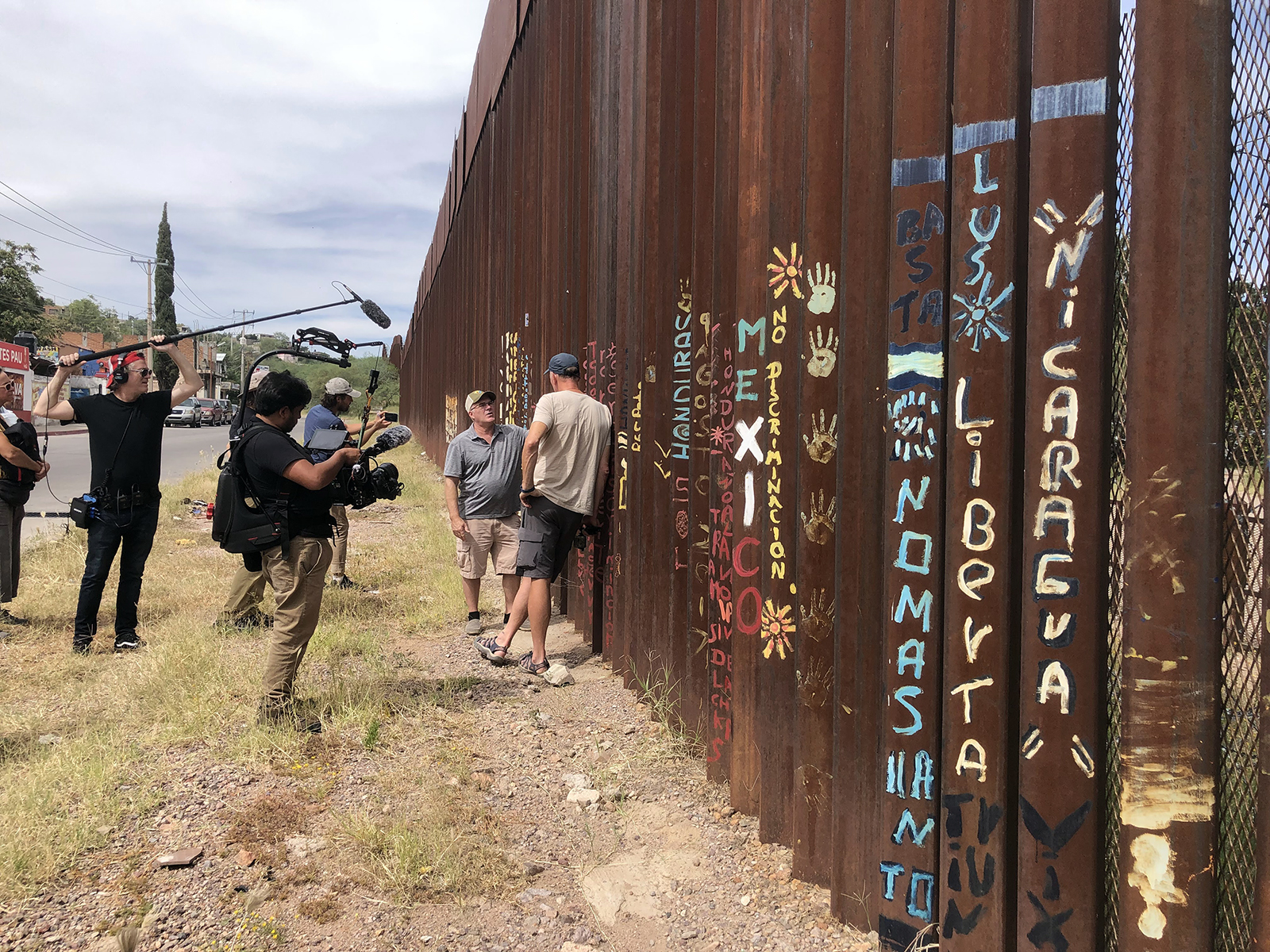
An interview by We The People Ride is conducted along the border fence on the U.S.-Mexico border in late September 2021. Photo courtesy of Vote Common Good
In just the first week of our ride, we met with people impacted by theRemain in Mexico policy and with Border Patrol officers. We stopped at the Asylum encampment in Tijuana, Mexico, to connect with organizers and immigrants. We sat down with a group of Guatemalan women seeking asylum in Nogales, Mexico, who travelled to our country pregnant, with children in tow, after witnessing the murder of a family member.
Many shared a single common experience: no one had stopped to ask them for their stories. Most were finger-printed, placed in a cold waiting room, then removed from the border and dropped off in a nearby town to await further instructions. While politicians preach the notion of having immigrants come to our country “the right way,” we aren’t even giving these newcomers a chance to plead their case.
At our nation’s core is the notion of justice for all — a justice that will not stand to be abused, twisted, or taken advantage of. Over the next few weeks, we will be sharing the testimonies of those we meet along the border and our impressions, as well as tall tales of the blisters quickly forming under our shoes.
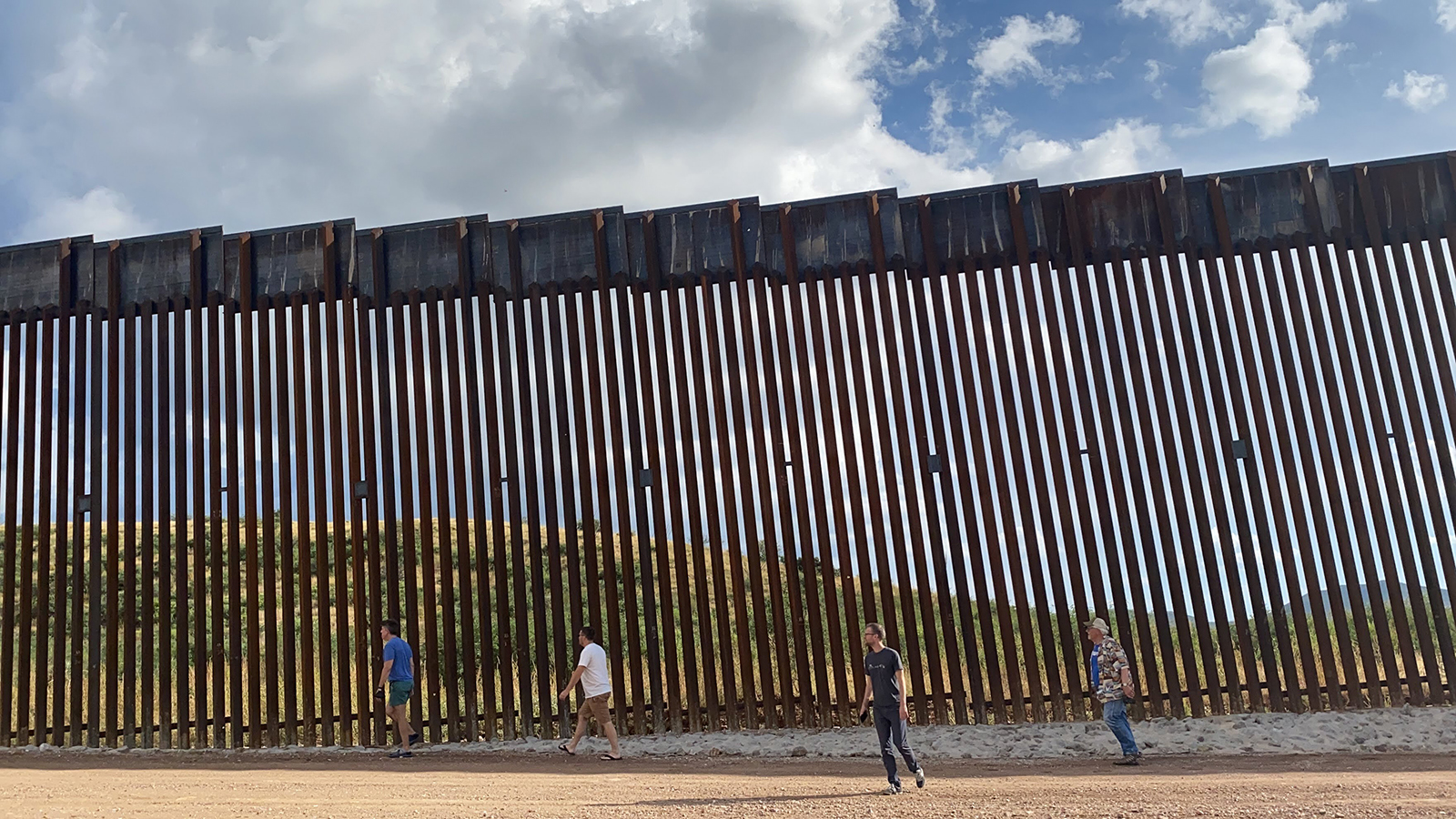
We The People Ride participants walk along a section of border fence on the U.S.-Mexico border in late September 2021. Photo courtesy of Vote Common Good
Most of all, we hope to remind the public that we need a Common Good approach to immigration and border management – one that leads to the inclusion of refugees, immigrants and asylum seekers through a clear, fair, accessible path to migrate to the United States.
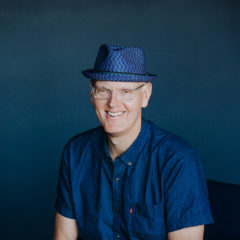
Doug Pagitt. Courtesy photo
I pick up my bike and look out across the long stretch of pavement ahead. Onward.
(Doug Pagitt is an evangelical pastor and the executive director of Vote Common Good. The views expressed in this commentary do not necessarily reflect those of Religion News Service.)
